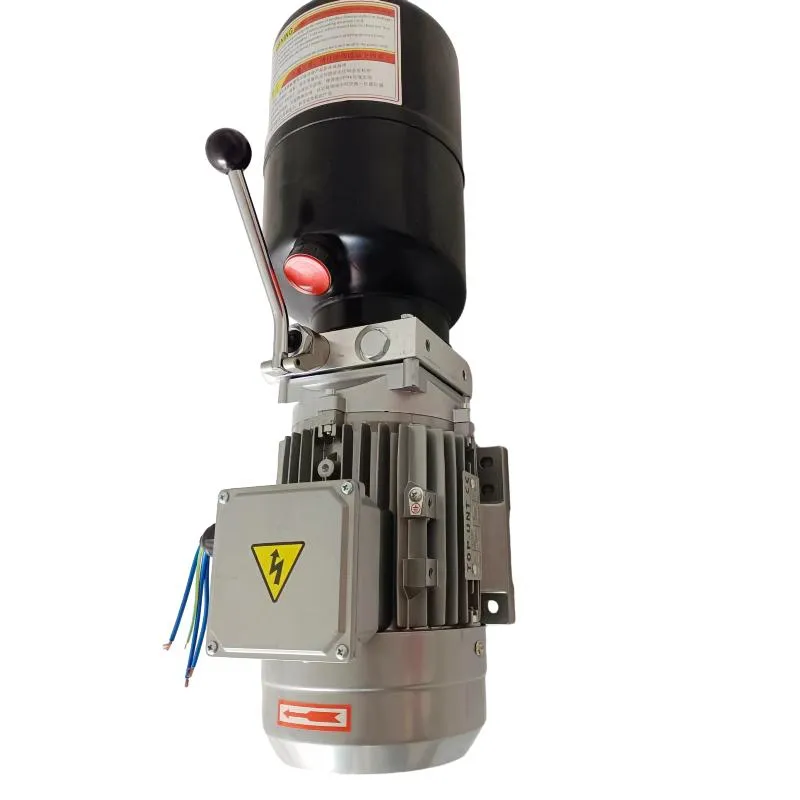វិច្ឆិកា . 26, 2024 23:03 Back to list
Custom Fabricated Hydraulic Cylinder with Welded Clevis for Enhanced Performance and Durability
Custom Welded Clevis Hydraulic Cylinder A Key Component for Precision and Performance
In the world of hydraulics, the importance of high-quality hydraulic cylinders cannot be overstated. Among the various designs available, the custom welded clevis hydraulic cylinder stands out for its unique features and adaptability. This article explores the intricacies of custom welded clevis hydraulic cylinders, their applications, advantages, and the manufacturing process that ensures their effectiveness.
Understanding Hydraulic Cylinders
Hydraulic cylinders are mechanical devices that convert hydraulic energy into linear motion. They consist of a cylinder barrel, a piston, and two end caps. Hydraulic fluid is introduced into the cylinder, creating pressure that moves the piston, which in turn moves the load. Hydraulic cylinders are widely used in diverse applications such as construction equipment, agricultural machinery, and industrial machinery due to their ability to generate significant force in a compact size.
The Clevis Design
The clevis design refers to a type of connector that allows two components to pivot relative to each other. In the context of hydraulic cylinders, a clevis joint enables easy attachment to different types of machinery or structures. This pivot feature is particularly important in dynamic environments, where movement can be unpredictable, allowing components to accommodate misalignments without damaging the cylinder or the equipment it operates.
Why Choose Custom Welded Clevis Hydraulic Cylinders?
Customization is one of the most significant benefits of welded clevis hydraulic cylinders. Standard cylinders may not meet specific performance requirements or spatial constraints, especially in complex machinery or customized applications. By opting for a custom welded solution, manufacturers can tailor the hydraulic cylinder to fit precise specifications regarding size, stroke length, mounting style, and pressure ratings.
Some of the key advantages of custom welded clevis hydraulic cylinders include
1. Enhanced Durability Welding provides a robust way to join components, ensuring that the cylinder can withstand high pressures and harsh operating conditions. Custom welded designs can also utilize advanced materials that enhance strength and resistance to wear and corrosion.
2. Improved Performance Customization allows for optimizing cylinder dimensions and configurations specific to particular applications. This optimization translates to more efficient power transmission, reduced power loss, and improved overall machinery performance.
custom welded clevis hydraulic cylinder

3. Versatility Custom welded clevis cylinders can take on various sizes and shapes, accommodating different design and operational needs. They can also be equipped with various features such as built-in sensors, alternative fluid ports, and specialized seals, making them suitable for a wide range of industries.
4. Cost-effectiveness While custom designs might appear expensive initially, they can lead to cost savings in the long run. A well-designed hydraulic cylinder reduces the need for ongoing repairs and replacements, ultimately enhancing the operational efficiency of the machinery.
The Manufacturing Process
The creation of a custom welded clevis hydraulic cylinder involves several steps
1. Design Consultation Manufacturers work closely with clients to understand their specific needs, including load requirements, working environment, and space constraints.
2. Material Selection The right materials are critical for durability and performance. Options such as high-strength steel, aluminum, or corrosion-resistant alloys may be considered.
3. Precision Machining Components are machined to exact specifications. This can include the cylinder barrel, piston rod, and the clevis joints. Precision machining ensures that each part fits together seamlessly.
4. Welding Fabrication Skilled welders perform the welding process, ensuring strong joints that can handle the expected pressures. This stage requires adherence to strict quality standards to prevent future failure.
5. Testing Before delivery, the hydraulic cylinder undergoes rigorous testing to ensure it meets performance expectations. This can include pressure tests, operational testing, and inspections of weld integrity.
Conclusion
Custom welded clevis hydraulic cylinders are indispensable components in many mechanical systems. Their durability, adaptability, and precision make them an invaluable choice for industries ranging from construction to aerospace. By utilizing advanced manufacturing techniques and customization, these hydraulic cylinders not only enhance performance but also contribute to the efficiency and longevity of the machinery they serve. In an ever-evolving industrial landscape, investing in quality hydraulic solutions is key to maintaining a competitive edge.
-
1.5 Ton Turbocharged Cylinder 80/95-40/60-35-124 | High Performance
NewsAug.22,2025
-
High-Performance Fork Lift Hydraulic Power Units
NewsAug.21,2025
-
High-Quality Set of 50/60-45-290 471 - Precision Parts
NewsAug.19,2025
-
1.5 Ton Lifting Cylinder-Hebei Shenghan|Heavy-Duty Lifting, Precision Engineering
NewsAug.18,2025
-
1.5 Ton Lifting Cylinder-Hebei Shenghan|Precision Hydraulic Solutions&Industrial Lifting
NewsAug.18,2025
-
1.5 Ton Lifting Cylinder 70/82-40-290-535 - Hebei Shenghan Hydraulic Machinery Co., Ltd.
NewsAug.18,2025
